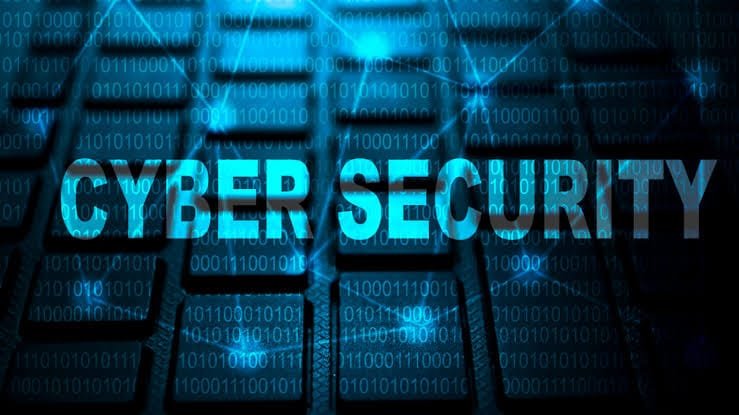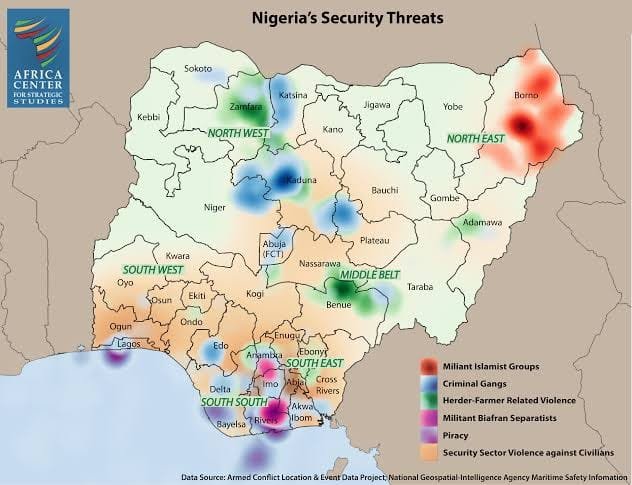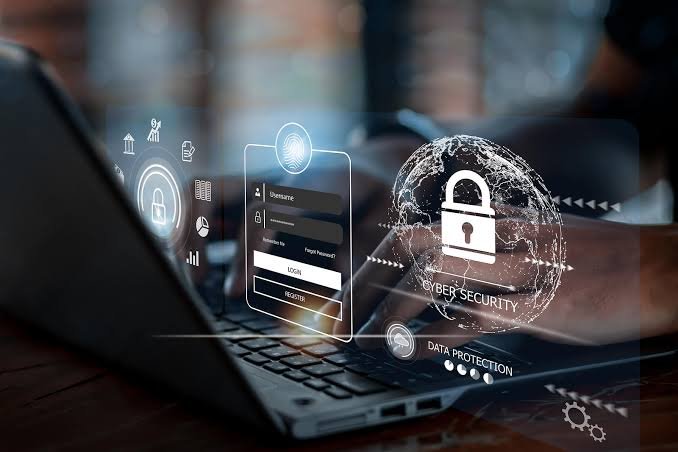Currently in the world which is highly advanced in terms of technology, cyber threats are one of the major concerns to everyone, businesses, and governments inclusive.
To combat these threats, Morden security teams in Nigeria need to be smart, equipped with the right tools, and constantly on the lookout.
This article focuses on how the modern security teams in Nigeria fights today’s cyber threats, and it also proffers some of the best practices as well as answers to the common questions

Understanding the Cyber Threat Landscape
Now let’s take a look at the actual tactics that modern security teams employ before we delve deeper into the current state of threats.
Modern cyber criminals are better coordinated, and are not deterred by the concept of ‘no-piry’. Part 1:
Common Cyber Threats in Nigeria
- Ransomware Attacks: Hackers gain access to an organization’s information, and then lock it and request for ransom.
- Phishing Scams: Phishing is deceiving users into sharing personal information through fake emails or websites.
- Data Breaches: The unauthorised access of information that is often stored in organisations.
- Social Engineering Attacks: Intentionally deceiving people to get authorization to enter secure networks.
- Malware – Virus, Trojan horse, Worms, Trojan, and others that seek to destroy, corrupt, or infiltrate a system.
- Advanced Persistent Threats (APTs) – Long-term and targeted attack on a system in which the attacker penetrates the defense of a target and gains control over it with minimal interference.
Read More: How to Secure Your Smartphone from Cyber Threats
Cyber crime in Nigeria is gradually assuming a more dangerous dimension and since many organisations are now going online, both local and international organisations are at the mercy of these unscrupulous elements.

The Nigeria Cybersecurity Report 2024 reveals that Nigerian businesses have experienced a massive upsurge in cyber threats in the last one year – a clear pointer to the need for enhanced cybersecurity measures.
How Modern Security Teams Fight Cyber Threats
Morden security teams employ technology, personnel, and processes in order to prevent and mitigate today’s threats.

Below are the primary Modern cybersecurity solutions methods they employ:
1. Implementing the use of Artificial Intelligence and Machine Learning
AI and ML have transformed the entire cybersecurity in Nigeria. Security teams in Nigeria use these technologies to find out the deviation, foresee threats and even implement the remedial measures.
- Real-Time Threat Detection: AI tools scan network activities for any malicious activities.
- Automating Response: In case of an attack, AI can work to counter the attack, which decreases the time to respond.
- Predictive Analysis: Machine learning models predict possible weak points and recommend preventive actions.
2. Multilayer Security Management Strategies
Current approaches to cybersecurity in Nigeria are based on the principle of protection in depth. This involves the use of multiple security controls on systems such that if one has failed, others can effectively address the risk.
- Firewalls and Intrusion Prevention Systems: Detect anomalous traffic flow for incoming and outgoing traffic.
- Endpoint Protection: Protects computers, cell phones, and tablets, and other devices.
- Data Encryption: Ensures that data which is in transit or at rest is secured against unauthorized persons and access.
- Zero Trust Architecture: Zero Trust operates on the principle that no device or user, inside or outside the network, should be trusted by default. Every request for access must be verified before granting permission.
3. Proactive Threat Hunting
Security teams today are not just waiting for incidents to occur to then respond to them. But they do not wait for threats to hunt them but rather look for threats all over the place.
Threat hunting is all about detection and containment of threats before they can be of any harm.
This has become particularly important in Nigeria for industries such as banking, telecommunications and e-commercial activities, which deals with sensitive data that is under threat most of the time.
Security teams also employ modern tools such as Security Information and Event Management systems, which consolidate logs from different systems, for real-time analysis. This assists the security analysts to discover any irregularities and even attacks which can otherwise be hidden in normal security monitoring.
4. Employee Training and Awareness
One of the biggest culprits of cyber threats is human error. Current security measures adopted by organizations in Nigeria focus on raising awareness of the workforce to cyber risks.
- Phishing Simulations: Educate staff on how to avoid the scams.
- Cybersecurity Workshops: Inform people of the secure ways that they can use the internet.
- Safe password practices: Creating different and long passwords for different accounts and using two-factor authentication (2FA).
- Security protocols: Adhering to organizational specific measures, for instance, locking the computer when left alone.
5. Threat Intelligence Sharing
Cybercrime is not a one-man show; it requires collective efforts to counter it. Cybersecurity specialists in Nigeria collaborate with different global associations to know more about the new threats.
- Partnerships with Global Security Firms: Have access to more comprehensive list of threat indicators.
- Local Collaborations: Consult with other organizations to help enhance the general security in Nigeria.
6. Incident Response and Recovery Plans
Despite having all these measures in place, it is sometimes possible to experience a breach. Security teams across Nigeria make sure they have documented their incident response plan to reduce impacts.
- Immediate Containment: Quarantining of the affected systems so as to avoid proliferation of the problem.
- Forensic Analysis: Checking out what exactly led to the breach of security.
- Post-Incident Recovery: Reconstructing lost systems and putting in place mechanisms to ensure they are not replicated.
7. Cloud Security Solutions
Cloud computing has become the new norm of business operations but this has come with new risks. Today, security teams use cloud security solutions to protect information and applications hosted in the cloud. This involves:
- Cloud Access Security Brokers (CASBs): These tools enable audit and management of usage of cloud services and prevent unauthorized access to data.
- Encryption: Making sure that data that resides in the cloud is properly encrypted when stored and when in transit.
- Identity and Access Management (IAM): Controlling cloud resource access according to the role of the users or ensuring that only authorized or appropriate personnel has access to the resources.
This, therefore, means that cloud computing security will remain a crucial area of concern in Nigeria especially given the fact that many businesses are now embracing the technology to store important information such as customer details and financial records.
Modern Cybersecurity Technologies
- Zero Trust Security Models
The Zero Trust model provides that no one is trustworthy, including employees within the organization and outside individuals. It guarantees rigorous identification of all user as well as devices. - Advanced Threat Protection (ATP) Tools
ATP tools give security teams valuable information on active threats and help to respond faster. - Cloud Security Solutions
As cloud computing has become popular in Nigeria it is important that data and applications in the cloud are secured. Cloud security measures are adopted by security teams to make use of native protection measures.
The Role of Government and Regulations in Nigeria
n order to enhance the cybersecurity, the Nigerian government has adopted measures such as the Cybercrime Act of 2015, which defines the penalties for cybercriminal activities.

Current security operations are conducted within the context of such frameworks, guaranteeing compliance with the norms while adopting best practices from around the world.
Why Cyber Security is Important for Nigeria
With Nigeria starting its journey to digital transformation, the issue of cybersecurity becomes paramount. Cyber threats in Nigeria always result in financial loss, reputational loss, and legal consequences. Today’s security teams are essential in protecting the country’s digital assets.
Safety Measures That Individuals in Nigeria Should Adopt While Using the Internet
- Use Strong Passwords: Do not use what can be known easily as passwords. Think about the password manager usage.
- Enable Two-Factor Authentication: Enhances the security of your accounts in some way or the other.
- Keep Software Updated: Updates fix issues and correct bugs that can create holes in the system.
- Be Wary of Public Wi-Fi: Always connect with a VPN when using public networks.
- Backup Your Data Regularly: Optimize your protection against data loss during attacks.
Frequently Asked Questions
What Are the Most Common Cyber Threats in Nigeria?
Is Cybersecurity Expensive for Small Businesses in Nigeria?
Can AI Really Detect Cyber Threats?
What Are the Key Cybersecurity Tools Used by Security Teams?
How Do Modern Security Teams Detect Cyber Threats?
How Can Nigerian Businesses Strengthen Their Cybersecurity Defenses?
What Is Zero Trust, and How Does It Work?
What Should I Do If My Business Experiences a Cyber Attack?
Conclusion
As it has been observed that the cyber threats are dynamic in nature, therefore the defense mechanisms against them must also be equally dynamic. Morden security teams are trying to incorporate Modern cybersecurity solutions like AI, machine learning, and zero-trust into their security strategies. Therefore, for Nigerian businesses it is imperative to embrace these technologies and undertake a layered security approach to protect against emerging threats that are evident in the rise of cybercrimes.
With more organizations in Nigeria adopting digital changes, the issue of cybersecurity will be crucial in its ability to safeguard important information as well as to rebuild consumer confidence in today’s digital economy.




